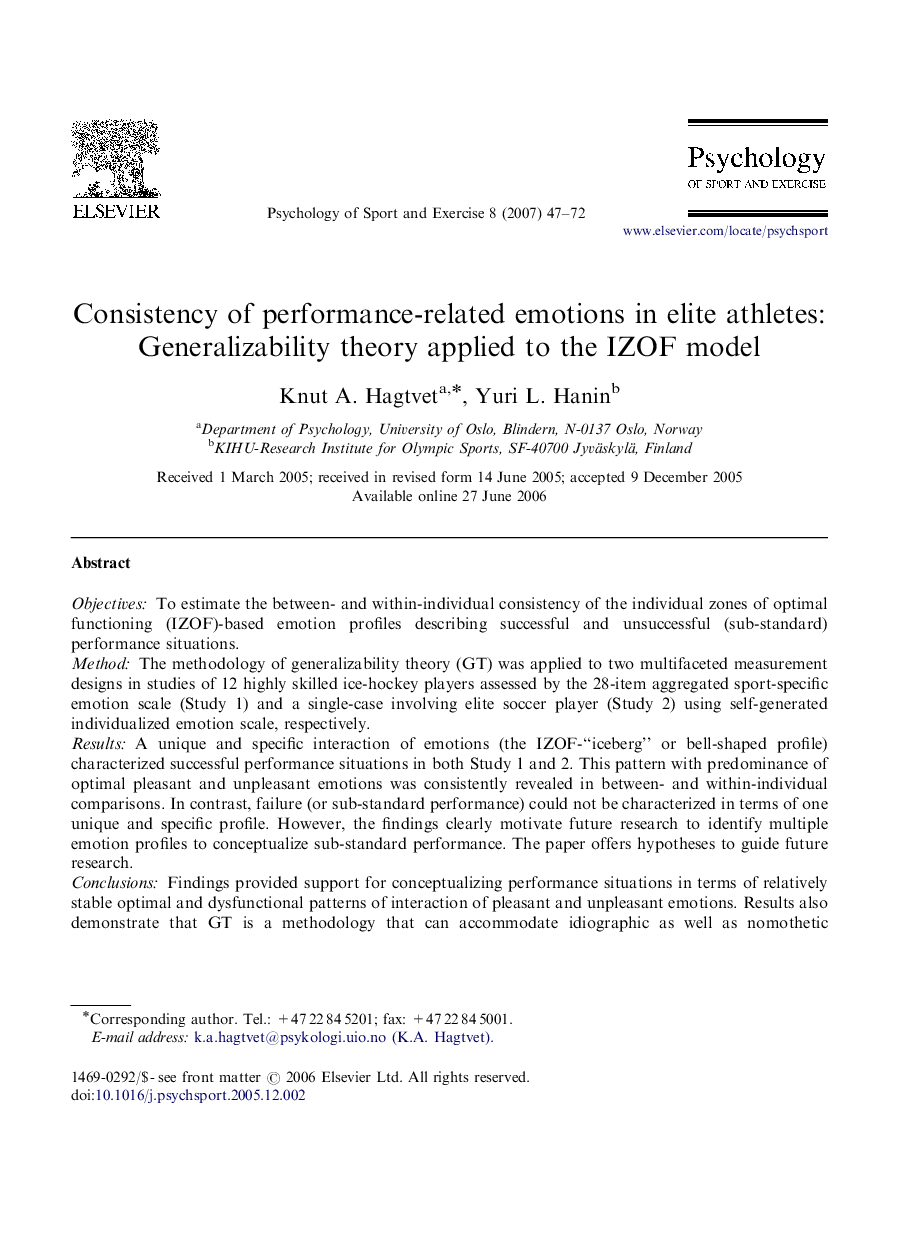| Article ID | Journal | Published Year | Pages | File Type |
|---|---|---|---|---|
| 894943 | Psychology of Sport and Exercise | 2007 | 26 Pages |
ObjectivesTo estimate the between- and within-individual consistency of the individual zones of optimal functioning (IZOF)-based emotion profiles describing successful and unsuccessful (sub-standard) performance situations.MethodThe methodology of generalizability theory (GT) was applied to two multifaceted measurement designs in studies of 12 highly skilled ice-hockey players assessed by the 28-item aggregated sport-specific emotion scale (Study 1) and a single-case involving elite soccer player (Study 2) using self-generated individualized emotion scale, respectively.ResultsA unique and specific interaction of emotions (the IZOF-“iceberg” or bell-shaped profile) characterized successful performance situations in both Study 1 and 2. This pattern with predominance of optimal pleasant and unpleasant emotions was consistently revealed in between- and within-individual comparisons. In contrast, failure (or sub-standard performance) could not be characterized in terms of one unique and specific profile. However, the findings clearly motivate future research to identify multiple emotion profiles to conceptualize sub-standard performance. The paper offers hypotheses to guide future research.ConclusionsFindings provided support for conceptualizing performance situations in terms of relatively stable optimal and dysfunctional patterns of interaction of pleasant and unpleasant emotions. Results also demonstrate that GT is a methodology that can accommodate idiographic as well as nomothetic approaches to estimating within-individual and between-individual consistency patterns of performance-related emotions.
